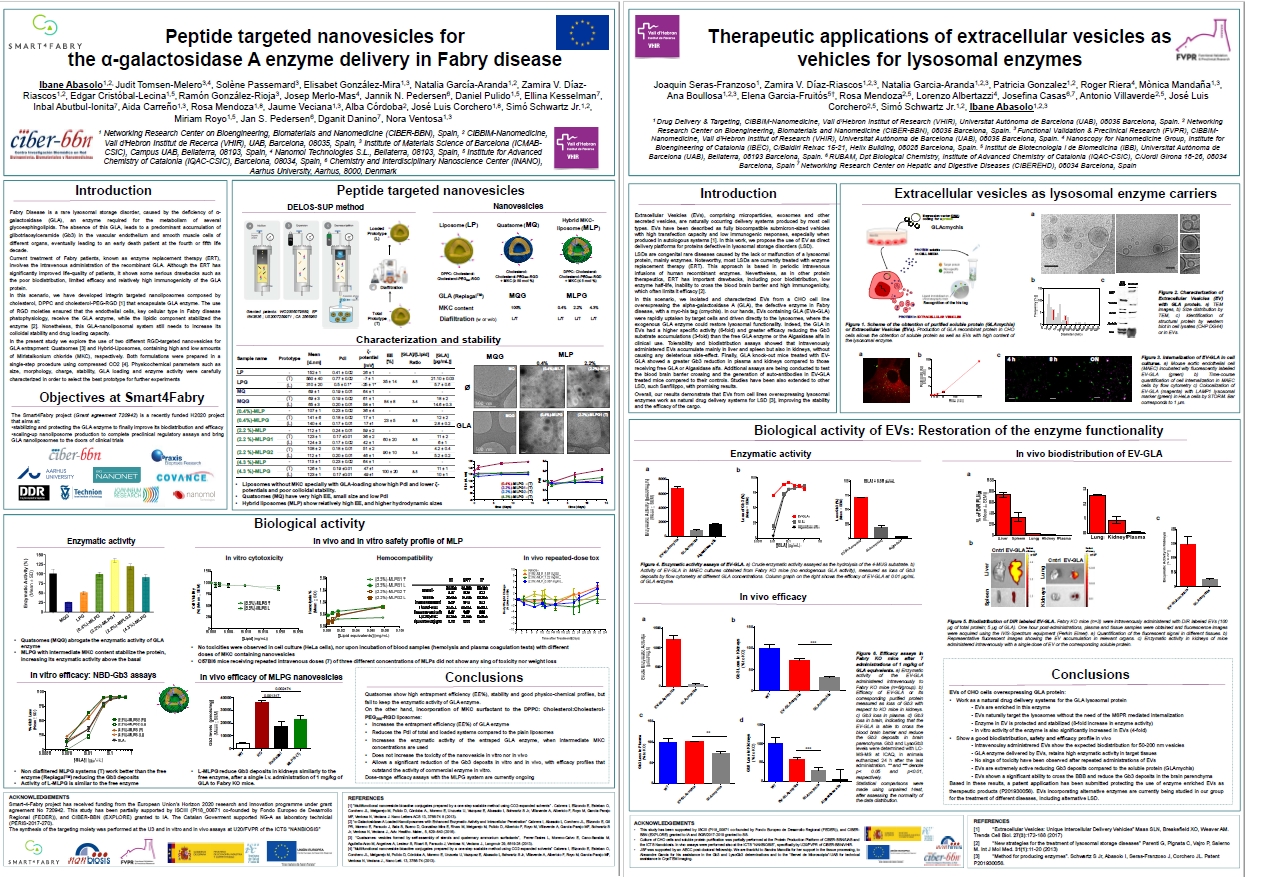
Last week took place in Braga, Portugal, the Nanomed Europe Conference, NME19, a new and unique conference born from the merge of the 14th annual event of the ETPN & the European scientific conference ENM (after London 2017 & Grenoble 2015), bringing together scientists, technology providers, entrepreneurs, industry and clinicians, all of them developing great medical applications of Nanotechnologies and emerging MedTech. The event is been co-organized this year by the ETPN and INL.
Simó Schwartz, Scientific Director of NANBIOSIS U20, was one of the selected speakers and gave a lecture about “Preclinical development of magnetic nanoparticles for the treatment of pancreatic cancer”
Two posters mentioning the research carried out at NANBIOSIS Unit 20 were also presented. (See the picture)
It was also a ood opportunity to explain the advances in the two H2020 projects where NANBIOSIS U20 participates (“Nocanther” and “Smart4Fabry”), and also an internal project, “Meridian”, on the use of exosomes (with own patent and financed by the FIS).
In Nocanther Project, the U20 participates providing the animal models and the imaging techniques (X-ray CT images) for the biodistribution and efficacy assays of iron oxide nanoparticles. These assays are essential for preparing the dossier for the clinical application of these nanoparticles. Indeed, patient recruitment for clinical studies on Nocanther project will start in 2020.
In Smart4Fabry, the U20 works completing the efficacy assays of different nanoGLA formulations. Again, these efficacy assays will be a necessary step before starting preclinical regulatory assays.
In the MERIAN project, U20 provides the in vivo proof-of-concept and biodistribution assays that support the use of protein loaded exosomes as a feasible product for treating lysosomal storage disorders.








